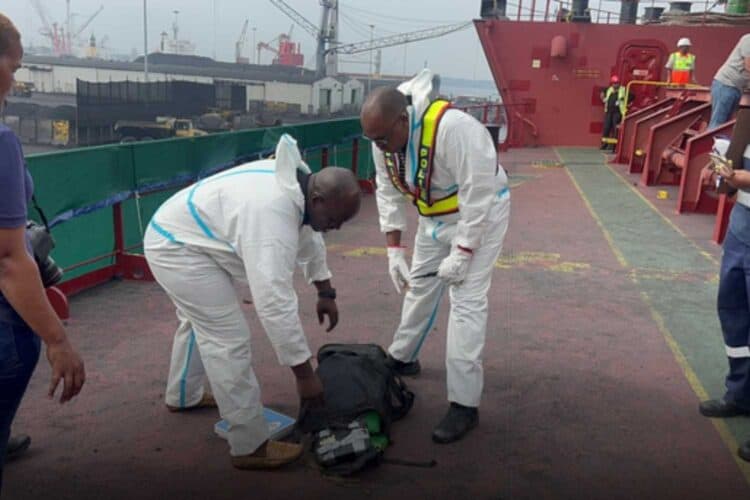On Monday, a collaborative law enforcement operation led by the Hawks in KwaZulu-Natal (KZN) resulted in the seizure of cocaine valued at approximately R15 million.
KZN authorities seize R15 million cocaine
KZN Hawks spokesperson Lieutenant Colonel Simphiwe Mhlongo confirmed that the operation conducted at the Richards Bay Port of Entry was spearheaded by both local South African authorities and the US Drug Enforcement Agency (DEA).
According to Mhlongo, intelligence had tipped them off about the drug-laden vessel arriving from Columbia.
A thorough search was conducted upon the vessel’s arrival, leading to the discovery of several blocks of cocaine.
Despite the successful seizure of the narcotics, no arrests have yet been made, and investigations continue.
KZN Hawks head Major General Dr Lesetja Senona expressed gratitude towards all participants in the operation and affirmed their commitment to tracking down the perpetrators involved in this smuggling attempt.
“We will continue to work together with other internal stakeholders to track and trace the perpetrators involved in this drug trafficking”, he said.
Was this a decoy or a major drug bust?
The operation’s success in seizing a significant amount of cocaine without any accompanying arrests has sparked speculation about the true nature of the shipment.
Historical patterns suggest that similar drug busts, such as those in Gqeberha in November 2023, and Durban a month before, also resulted in no arrests, despite substantial quantities of drugs being intercepted.
These incidents have led some to wonder whether such seizures are actually decoys intended to distract law enforcement from even larger smuggling operations.
While no concrete evidence supports this theory, the pattern of events is notable.
How cartels employ smuggling methods to traffic drugs across the world
Cartels have long employed sophisticated smuggling methods to transport drugs globally, often using decoy shipments as a strategic ploy to divert law enforcement’s attention from larger drug consignments.
This tactic exploits limitations in law enforcement resources, including funding and manpower, allowing smugglers to operate with a lower risk of interception.
The United Nations Office on Drugs and Crime’s 2023 Global Cocaine Report indicates an increase in maritime trafficking of cocaine to South Africa, suggesting that the country may be a critical transit point in the wider global drug trade network.






